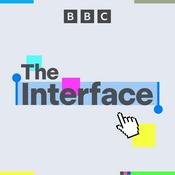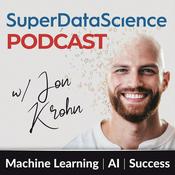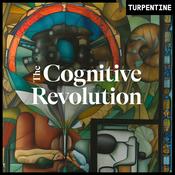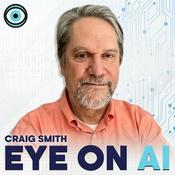613 episodes
588 - Clinical Pathways: Improving Patient Journeys and Efficiency with Digital Health Solutions
18/02/2026 | 45 mins.In this episode of Talking HealthTech, host Peter Birch speaks with Paul Eleftheriou, Principal and Co-Lead of Digital Health at Nous Group, and Rhonda Morton, Australian Director for Strategy and Partnerships at Streamliners, about the role of clinical pathways in modern healthcare.
The conversation explores what clinical pathways are, why they are important, how they interact with technology like medical records, e-referrals, and AI tools, and how they can address inefficiencies and improve patient and clinician experiences across Australia.
The discussion also dives into the challenges of translating evidence into practice, the impact of fragmentation in the health system, and the critical role of workforce engagement, leadership culture, and patient-centred design.
The conversation provides practical insights into how clear, collaborative clinical pathways can reduce clinician burnout, promote health equity, and create a foundation for safe, smart digital innovation.
It examines how evidence-based pathways interact with technology such as electronic medical records, e-referrals, and AI tools, and explores strategies to overcome system fragmentation while improving consistency, efficiency, and patient-centred care across healthcare settings.
Key Takeaways
✨ Clinical pathways standardise care, providing consistent, evidence-based guidance for clinicians and supporting a seamless patient journey across fragmented health systems.
🤝 Integrating clinical pathways with digital tools improves communication, reduces inefficiencies, and helps prevent patients from falling through the cracks in a federated healthcare environment.
📉 Pathways can address “hidden taxes” on the system, such as unnecessary tests and duplicated processes, unlocking both cost savings and safer care.
👩⚕️ Effective pathways reduce clinician burnout by delivering point-of-care tools that streamline decision-making, and must be co-designed with both workforce and patient needs in mind.
🤖 Solid foundational systems are needed before leveraging advanced technologies like AI, ensuring that any innovations support, rather than overwhelm, clinicians and patients.
Timestamps
00:00 — Introduction
00:36 — What are clinical pathways?
04:49 — Clinical pathways analogy: restaurants
06:09 — Pathways as patient journeys
07:42 — Digital’s role and “filling the cracks”
12:09 — Inefficiencies and hidden taxes
16:58 — Interoperability vs. care pathways
24:12 — Clinician burnout and enabling workforce
28:04 — AI, tech foundations, and implementation
41:20 — Future directions for Streamliners
--------
Want to keep the conversation going?
The full article and extended show notes for this episode are available inside the THT+ Community here: View Full Article
In the THT+ Community, our members keep the discussion going, share perspectives, and unpack what this episode actually means in practice with other people working in healthtech.
If you’re enjoying the show and want access to full articles, episode discussions, meetups, and member-only content, you can learn more about becoming a THT+ Solo Member here: talkinghealthtech.com/thtplus.
Mentioned in this episode:
This episode is supported by Vanta - the platform trusted by 14,000+ companies to get SOC 2 and ISO audit-ready faster and build enterprise-grade security early. Save $1,000 at https://vanta.com/THT- In this episode of Talking HealthTech, Peter Birch and Rebecca McBeth from HiNZ speak with Hon. Tracey Martin, Darren Douglass, Debbie Hughes, and Alex Kemp about digital health innovation and challenges in New Zealand.
This episode explores the latest developments in digital health and aged care in New Zealand, recorded during Digital Health Week in Christchurch, hosted by Health Informatics New Zealand (HiNZ).
The discussion covers the digital transformation roadmap for Health New Zealand, highlighting how technology, clinical leadership, and inclusive design are shaping the future of care.
The episode examines the challenges and opportunities in residential aged care, including workforce pressures, funding reforms, and the practical use of AI and digital tools to support frontline staff.
The evolving role of HiNZ within the health sector is explored, including efforts to foster cross-sector collaboration, drive innovation, and provide long-term governance.
The conversation captures insights from industry leaders and practitioners, offering a comprehensive view of New Zealand’s approach to digital health transformation, grounded in practical, human-centred strategies.
Key Takeaways
✨ The future of aged residential care in NZ faces both political and practical challenges, with technology positioned to streamline processes and enable more human-centred care.
🧠 Co-design and direct involvement of disabled people in digital health solutions is crucial; early engagement helps address accessibility and diversity in technological development.
💼 Health New Zealand’s ten-year digital investment plan focuses on stabilising infrastructure, modernising platforms with AI and automation, and ultimately transforming clinical care and patient access.
🤝 Building trust and breaking down silos in healthcare are priority strategies for HiNZ, fostering connection and collaboration across the health sector.
👥 Leadership, change management, and digital upskilling initiatives are central to delivering sustainable transformation for NZ’s health workforce and systems.
Timestamps
00:00: Introduction
00:43: Hon. Tracey Martin - Aged Care Association, NZ
07:27: Darren Douglass - Acting Chief Information Technology Officer, Health NZ
17:42: Debbie Hughes - Chief Executive, NZ Disability Support Network
22:05: Alex Kemp - Director of Engagement/CEO, HiNZ
--------
Want to keep the conversation going?
The full article and extended show notes for this episode are available inside the THT+ Community here: View Full Article
In the THT+ Community, our members keep the discussion going, share perspectives, and unpack what this episode actually means in practice with other people working in healthtech.
If you’re enjoying the show and want access to full articles, episode discussions, meetups, and member-only content, you can learn more about becoming a THT+ Solo Member here: talkinghealthtech.com/thtplus.
And if this episode was useful, leaving a review or sharing it with someone in the industry always helps.
Mentioned in this episode:
This episode is supported by Vanta - the platform trusted by 14,000+ companies to get SOC 2 and ISO audit-ready faster and build enterprise-grade security early. Save $1,000 at https://vanta.com/THT 586 - Innovating Aged Care and Cancer Treatment: Inside ANDHealth Unfiltered 2025
12/02/2026 | 40 mins.In this episode of Talking HealthTech, host Peter Birch speaks with Carmela Sergi, CEO of the Care Economy CRC, Amanda Caples, Victoria's Chief Scientist, Jeff Malone, CEO of the Aikenhead Centre for Medical Discovery (ACMD), and Trang Nguyen, CEO and Founder of SeeTreat, about the intersection of digital health, innovation, and commercialisation in Australia.
The conversations explore how health technology is designed, implemented, and scaled in real care settings, with a focus on patient outcomes, workforce realities, and practical adoption.
The episode includes in-depth discussion on the future of the care economy and how co-design and end-user involvement are driving more effective, compassionate, and practical solutions.
The discussion also dives into the emerging role of quantum technology in healthcare, strategies for translating research into real-world products, and how cross-sector collaboration can accelerate home-grown innovation.
This episode was recorded during the ANDHealth Unfiltered 2025 event in Melbourne, Australia, and features several discussions that highlight evolving trends and front-line experiences in Australian healthtech.
Key Takeaways
🧑🤝🧑 The Care Economy CRC focuses on integrating technology and data to uplift productivity and outcomes across aged care, disability care, early childhood education, and more, with a major emphasis on co-design and workforce involvement.
🤝 Effective health innovation requires collaboration among government, academia, and industry, with models like ACMD and event conveners like ANDHealth driving partnerships.
📉Technology uptake in healthcare faces barriers including workflow integration, clinician overload, and the risk of unintended consequences, making co-design with end users critical to success.
🦠 Quantum technologies and advanced analytics are emerging as significant contributors to research, service delivery, and patient outcomes, with Victoria positioning itself as an ecosystem leader.
💊 Translation from research to commercialisation is improving in Australia, but ongoing focus on ecosystem navigation, workforce engagement, and industry partnerships remains essential.
Timestamps
00:00 – Introduction
00:28 – Carmela Sergi, CEO, Care Economy CRC
08:34 – Amanda Caples, Victoria’s Chief Scientist
16:34 – Jeff Malone, CEO, ACMD
26:37 –Trang Nguyen, CEO & Founder, SeeTreat
--------
Want to keep the conversation going?
The full article and extended show notes for this episode are available inside the THT+ Community here: View Full Article Here
In the THT+ Community, our members keep the discussion going, share perspectives, and unpack what this episode actually means in practice with others working in healthtech.
If you’re enjoying the show and want access to full articles, episode discussions, meetups, and member-only content, you can learn more about becoming a THT+ Solo Member here: talkinghealthtech.com/thtplus.
And if this episode was useful, leaving a review or sharing it with someone in the industry always helps.
Mentioned in this episode:
This episode is supported by Vanta - the platform trusted by 14,000+ companies to get SOC 2 and ISO audit-ready faster and build enterprise-grade security early. Save $1,000 at https://vanta.com/THT585 - Optimising Patient Flow: Mindset, Metrics, and Continuous Improvement for Hospital Leaders
11/02/2026 | 24 mins.In this episode of Talking HealthTech, Peter Birch speaks with Dr Paul Deffley and Nick White from Alcidion about their new handbook on improving patient flow within healthcare systems.
The conversation explores why the handbook has been released now, its intended audience, and how its concepts can support leaders and clinicians in enhancing the movement of patients through hospitals.
The discussion examines the current pressures facing hospitals, including rising patient demand, workforce challenges, and system inefficiencies, and considers why traditional approaches to patient flow are no longer sufficient.
Lessons from other industries are explored, highlighting how principles such as systems thinking and Lean methodology can be adapted for healthcare.
The episode emphasises the combination of real-time data, organisational culture, and continuous improvement as central to creating safer, more efficient, and patient-centred hospital systems.
Key Takeaways
✅ Patient flow is more than implementing digital solutions—real change requires cultural and behavioural transformation within health organisations
✅ Real-time, system-wide visibility is critical for effective patient flow management and making data-driven decisions
✅ Adopting approaches from other industries, like Lean principles, must be tailored to the unique clinical and operational environment of healthcare
✅ Measuring a broad range of indicators beyond standard KPIs (e.g., length of stay, outliers, medically ready to discharge) provides better insights and guides improvement
✅ Practical actions like shop floor engagement and prioritising system-wide visibility can drive immediate and meaningful change
Timestamps
00:00 – Introduction
00:47 – Who the handbook is for and its purpose
01:33 – Why address patient flow now
02:41 – The importance of system-wide visibility
03:39 – Practical tools from the handbook
05:29 – Comparing healthcare to other industries
07:52 – Customising industry methods for clinical environments
08:57 – Differentiating patient flow discussions from electronic patient records
10:46 – The challenge of demonstrating return on investment in patient flow initiatives
14:30 – Rethinking metrics for measuring success in patient flow
17:27 – Actions health leaders can take today
19:01 – Actionable advice for immediate implementation
20:25 – How to access the handbook
--------
Want to keep the conversation going?
The full article and extended show notes for this episode are available inside the THT+ Community here: View Full Article Here
In the THT+ Community, our members keep the discussion going, share perspectives, and unpack what this episode actually means in practice with other people working in healthtech.
If you’re enjoying the show and want access to full articles, episode discussions, meetups, and member-only content, you can learn more about becoming a THT+ Solo Member here: talkinghealthtech.com/thtplus.
And if this episode was useful, leaving a review or sharing it with someone in the industry always helps.
Mentioned in this episode:
This episode is supported by Vanta - the platform trusted by 14,000+ companies to get SOC 2 and ISO audit-ready faster and build enterprise-grade security early. Save $1,000 at https://vanta.com/THT- In this episode of Talking HealthTech, Peter Birch speaks with Pete Williams, CTO of Tyro Health.
The episode explores the evolution of healthcare payments, including the transition from Medipass to Tyro Health and the latest trends in digital wallets.
It also covers the practicalities of surcharging, regulatory changes, integrated payment solutions, and the potential impact of technologies like stablecoin and PayTo on medical payments for clinics and patients in Australia.
Peter and Pete break down what these changes mean for clinics of all sizes, from day-to-day operations to long-term strategy.
They discuss how seamless payment experiences can improve efficiency, reduce errors, and enhance patient satisfaction, while also highlighting the risks and challenges practices face in a fast-moving digital payments landscape.
The conversation offers practical insights, real-world examples, and a forward-looking view of where healthcare payments are heading.
Key Takeaways
💳 The shift to digital wallets has reshaped payments in healthcare, with over 90% of card-present transactions now happening via Apple Pay, Google Pay, or similar options.
🔁 Surcharging remains a significant consideration for clinics, with around 40% of medical businesses enabling it, though regulations may change.
📲 Integration between payment systems and practice management platforms is now common, driving efficiency with over 70% of clinics automating their payment and reconciliation workflows.
🪙 Emerging payment innovations such as programmable money and advanced bank-to-bank systems like PayTo have the potential to change how recurring and complex healthcare payments are managed.
🏦 Less than 35% of overall healthcare payments are processed through Medicare, making integration with private insurers and funders increasingly critical for clinics.
Timestamps
00:00 – Introduction
00:31 – Changes since Medipass and acquisition by Tyro Health
01:32 – Payment technology experiences in healthcare
02:46 – Growth of the Tyro Health team
03:18 – Clinic perspective on payments
04:36 – Impact of digital wallets
05:39 – Clinic decisions and recent regulatory changes
07:22 – Surcharging rules for debit vs credit cards
08:04 – Balancing payment convenience for patients
08:43 – Percentage impact of payment costs on clinic margins
10:03 – Integrating payments with practice management systems
10:52 – Automation and three-way matching in clinics
12:29 – Approaches to optimising payments
13:53 – Programmable money, stablecoin, and use cases
15:46 – Payment innovation and health system challenges
17:01 – Distributed autonomous organisations
17:21 – PayTo, direct debit, and recurring payments
20:37 – Integrating more funders and improving patient experience
22:29 – Wrap up and resources
--------
Want to keep the conversation going?
The full article and extended show notes for this episode are available inside the THT+ Community here: View Full Article Here
In the THT+ Community, our members keep the discussion going, share perspectives, and unpack what this episode actually means in practice with other people working in healthtech.
If you’re enjoying the show and want access to full articles, episode discussions, meetups, and member-only content, you can learn more about becoming a THT+ Solo Member here: talkinghealthtech.com/thtplus.
And if this episode was...
More Technology podcasts
Trending Technology podcasts
About Talking HealthTech
Conversations with clinicians, vendors, policy makers and decision makers to promote innovation and collaboration for better healthcare enabled by technology.
Learn about digital health, medical devices, medtech, biotech, health informatics, life sciences, aged care, disability, commercialisation, startups and so much more.
Podcast websiteListen to Talking HealthTech, Search Engine and many other podcasts from around the world with the radio.net app
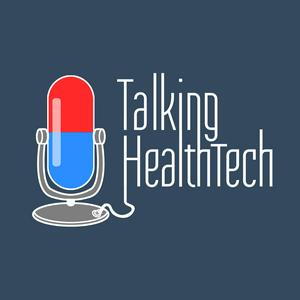
Get the free radio.net app
- Stations and podcasts to bookmark
- Stream via Wi-Fi or Bluetooth
- Supports Carplay & Android Auto
- Many other app features
Get the free radio.net app
- Stations and podcasts to bookmark
- Stream via Wi-Fi or Bluetooth
- Supports Carplay & Android Auto
- Many other app features


Talking HealthTech
Scan code,
download the app,
start listening.
download the app,
start listening.










